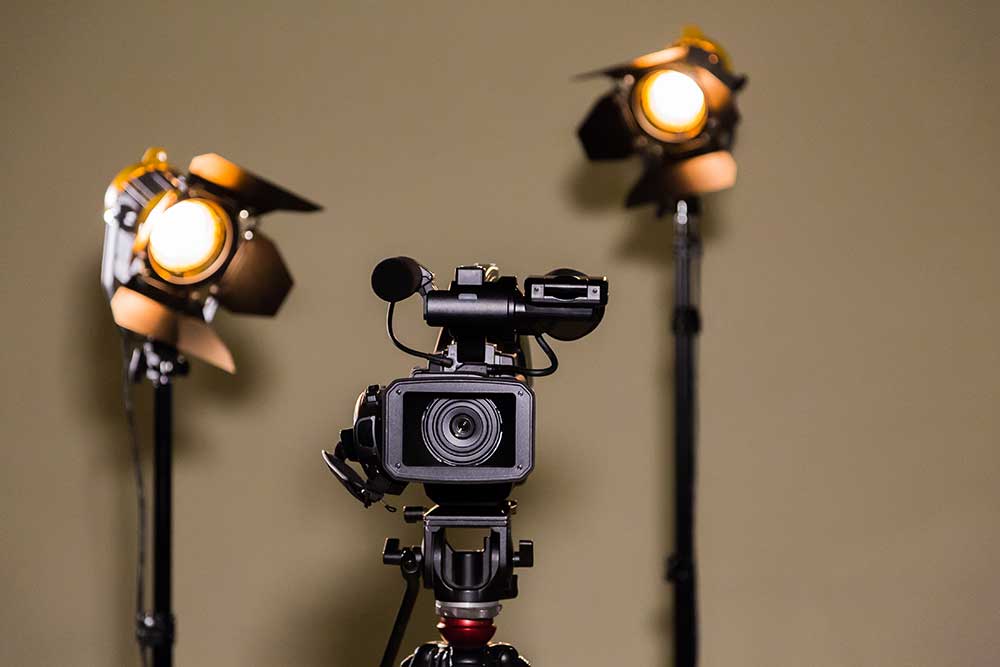The Role of Legal Videography in Depositions and Tests
Legal videography has actually arised as a crucial tool in both depositions and tests, giving a diverse approach to recording witness testimonies. As lawful professionals significantly acknowledge its worth, it triggers a deeper exam of just how these visual documents can influence juror understandings and trial end results.

Significance of Legal Videography
Legal videography plays a pivotal duty in the documents and presentation of depositions and trials. This specific area combines technical abilities with lawful understanding to create a trusted document of process that can considerably affect case outcomes. The appearance of legal videography improves the understanding of witness testament, enabling jurors and judges to observe not only the talked words but also the behavior, emotions, and body movement of the witnesses.
In enhancement, legal videography provides an unbiased account of occasions, reducing the possibility for misconception that can take place with created records alone. This visual documents acts as an essential tool throughout test discussions, assisting in a clearer and more convincing story for both plaintiffs and offenders. Furthermore, the ability to replay video segments throughout court process enables legal groups to highlight crucial points, strengthening their arguments efficiently.
The value of legal videography extends beyond the court room; it likewise plays a vital duty in protecting evidence for future reference, whether for charms or more lawsuit. Therefore, its combination into the legal process is crucial for guaranteeing a reasonable and precise representation of the facts, inevitably adding to the search of justice.

Process of Legal Videography
While catching the subtleties of depositions and tests, the process of legal videography includes a number of essential steps that make certain top notch, exact recordings. A professional legal videographer prepares by examining the case materials and comprehending the particular requirements of the deposition or trial. This preparation consists of familiarizing themselves with the individuals and the context, which assists in recording pertinent details.
On the day of the recording, the videographer sets up the needed tools, which typically consists of high-def video cameras, microphones, and correct illumination. Making sure optimum angles and sound quality is essential, as it directly influences the efficiency of the recording. The videographer connects with lawyers and participants to develop procedures, ensuring that every person understands the recording process.
During the deposition or trial, the videographer carefully videotapes the proceedings, paying attention to both spoken and non-verbal cues. This consists of capturing the demeanor and reactions of witnesses and lawyers. After the session wraps up, the videographer may modify the video footage for clarity and compliance with legal criteria, producing an end product that properly mirrors the proceedings for future reference and usage in lawful contexts.
Benefits in Depositions
The incorporation of videography in depositions uses various benefits that enhance the overall procedure of collecting evidence. One key benefit is the capacity to capture witness testaments with aesthetic and auditory fidelity, offering a more accurate depiction of the witness's attitude, tone, and body movement. This multidimensional approach permits lawyers and juries to assess trustworthiness better find more info than standard written transcripts alone.
Furthermore, videographed depositions work as an effective tool for protecting statement. Ought to a witness come to be inaccessible for test, their taped deposition can be played in court, making sure that their evidence stays accessible and pertinent. This element dramatically lowers the risk of losing essential details that might impact case results.

Finally, videography enhances the overall expertise of the deposition process, instilling confidence in clients regarding the thoroughness of their lawful depiction (legal videography). By leveraging modern technology, lawyers can substantially improve the efficiency of depositions
Effect on Trials
In many trials, the combination of videography can considerably affect the discussion of proof and the jury's perception. Lawful videography captures witness statements and essential evidence in a vibrant style, enabling jurors to involve with the material on several levels. This aesthetic component boosts the narration facet of a trial, giving context and psychological resonance that conventional text-based proof might lack.
Moreover, video clip recordings can work as effective devices for impeachment throughout cross-examination. When disparities occur in between a witness's prior declarations and their court room testimony, video clip proof provides an objective recommendation that can guide jurors' viewpoints. This immediacy and clearness can bolster the trustworthiness of an event's story while simultaneously undermining opposing arguments.

Future Trends in Legal Videography
As we look toward the future of legal videography, a number of arising trends assure to improve its role within the court room. One substantial fad is the assimilation of man-made intelligence (AI) in video evaluation and editing. AI can improve the process of recognizing key minutes in recorded depositions, permitting attorneys to rapidly access pertinent web content, thus boosting effectiveness find out this here in case preparation.
Furthermore, the rise of online fact (VR) and increased truth (AR) innovations is anticipated to change just how jurors experience proof. legal videography. By submersing jurors in a substitute setting, these innovations can offer a much more extensive understanding of complex circumstances, resulting in even more educated considerations
In addition, the enhancing need for remote depositions, accelerated by the COVID-19 pandemic, will likely continue. Lawful videographers will require to adapt to brand-new software and systems to make certain premium recordings in online setups.
Last but not least, the growing emphasis on data security will certainly require stricter procedures for saving and sharing video evidence. As the lawful landscape evolves, lawful videographers need to stay abreast of these patterns to keep their importance and efficiency in the judicial procedure.
Final Thought
In summary, lawful videography serves a crucial feature in the judicial process, improving the stability of depositions and trials. As technology continues to develop, lawful videography is positioned to additional change its role within the legal landscape.
Comments on “Reliable Legal Videography for Hearings.”